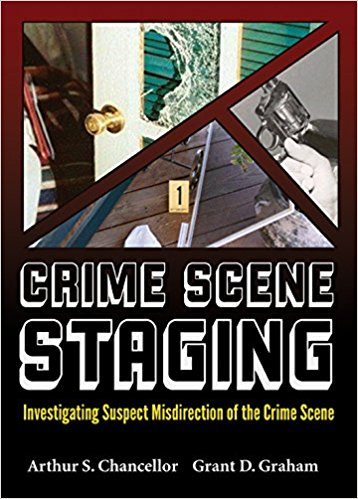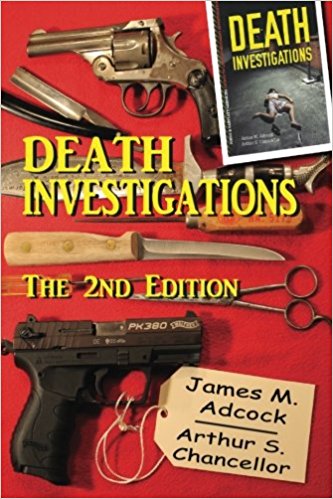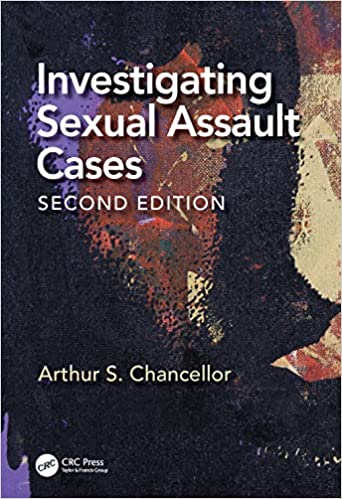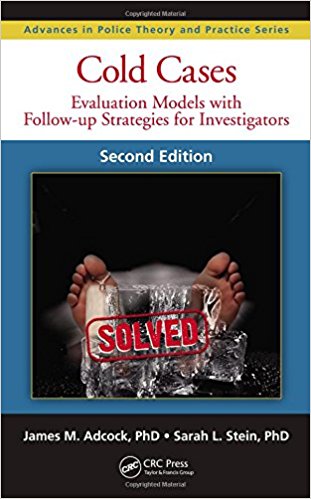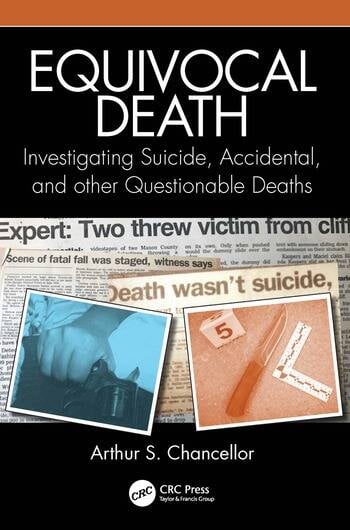Publications
Crime Scene Staging: Investigating Suspect Misdirection of the Crime Scene
This unique text has been written as a practical reference for detectives, crime scene investigators, and prosecutors on how to recognize a staged scene and how this offender behavior could be used as evidence in subsequent trials. The book is designed to help those actively engaged in conducting criminal investigations identify the red flags or those common findings at a crime scene that point to the scene being staged or altered and thereby assist the investigative process. The text is not only research based but also includes the authors’ 30-year experience and personal observations in conducting hundreds of different crime scene investigations ranging from homicide and death, burglary and other property crimes, to rape other and sexual crimes.
Prior to retiring from the Pennsylvania State Police, I served as the Supervisor of the Criminal Investigation Assessment Unit, as well as departmental representative as a subject matter expert in many areas, including Crime Scene Assessment and Crime Scene Staging….. I feel that this is a must read for all law enforcement and prosecutors and have added this book to my recommended reading list in all of my future training.
Patrick J. Zirpoli, Pennsylvania State Police, Ret./Investigative Sciences Journal/Volume 9/Number 1/March 2017
Melissa Fernandez
Death Investigations (The 2nd Edition)
D. Pauly, Special Agent (Ret.), Associate Professor/Director Applied Forensic Science, Methodist University, Fayetteville
Investigating Sexual Assault Cases (2nd Edition)
Mass LEO/Amazon Book Review
– Arthur S. Chancellor
– Grant D. Graham Sr.
Cold Cases: An Evaluation Model with Follow-up Strategies for Investigators
This second edition features a new revised model and methodology for investigating cold cases suitable for all police and public safety agencies―large or small, domestic or international. This new model is more expeditious and convenient for departments that have less manpower and experience in dealing with cold cases.
Mass LEO/Amazon Book Review
Equivocal Death: Investigating Suicide, Accidental and other Questionable Deaths
(A. Chancellor)
This unique text refocuses the attention of first responders and investigative personnel to the concept of treating every death as a homicide, until sufficient evidence is discovered to validate another manner of death and eliminate the possibility of a staged homicide.
All death investigations should include a well-documented and examined crime scene and a thorough preliminary investigation. It is a well-established, unwritten “rule” when conducting death investigations to initially treat every death as a possible homicide. This includes the examination of the body, the recovery scene, the autopsy, collection of forensic evidence, and subsequent laboratory analysis. Police and investigators are often confronted with a death scene that they cannot initially determine the manner of death; these instances are known as equivocal death.
Coverage focuses on the basics of death investigation and the how to’s rather than dwelling on extraneous and unnecessary detail. By example, it is generally more important for the detective or CSI to understand how to properly pick up forensic evidence at the scene, and how the resulting analysis relates to their investigation, rather than the mechanics of how the evidence is extracted and analyzed at the lab. For suicide and equivocal deaths, it is likewise important that detectives also understand the importance of such things as a victimology assessment, risk factors, and/or ante mortem behaviors of the victim, cues that may provide clues that would be consistent with someone contemplating suicide. The book also features several aspects of criminal investigation that are not found in similar books, including coverage of victimology, including crime scene staging, the notion of psychology autopsy, and how to identify those risk factors or behaviors that are consistent with suicide including motive, intent, and ability.
Articles and Podcasts
Article: Crime Scene Staging, Crime Scene Clues to Suspect Misdirection of the Investigation
Article: “I’ve been shot!” Or maybe not.” Texas District & County Attorney’s Assoc., The Texas Prosecutor, Jan-Feb 2017, Vol. 47, Iss. 1
Article: Sandra Melgar guilty of killing husband, faking home invasion on Houston couple’s anniversary night.
Article: Investigating Sexual Assault Cases: Article from the Military Police Regimental Association Magazine (Winter 2018, Vol 28, No 3)
Article: Fayetteville Police Forensic Manager (Grant Graham) Co-Authors Crime Scene Staging Book
Forensic Files: Army of Evidence (Steve Chancellor is featured in a previously determined suicide case reinvestigated as a homicide)
Podcast: Inside the Badge (Grant Graham and Steve Chancellor speak about crime scene staging with Dr. Carlos Vazquez)
Podcast: Solving Cold Cases (Grant Graham talks with Dr. Jim Adcock about crime scene processing and cold case investigations) Aug 28, 2019
Podcast: Solving Cold Cases (Steve Chancellor speaks with Dr. Jim Adcock about crime scene staging and cold case investigations) Sep 4, 2019

